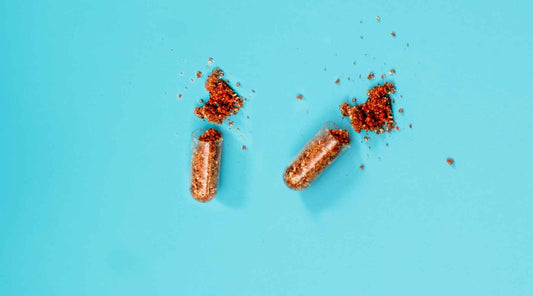
Vitamin D supplements are essential in UK winter
Years ago I went to an exhibition at the Imperial War Museum, displaying historic public health posters.
One surprising topic was flies - teaching people that flies are a principle cause of disease and they should cover food and milk.
That seems remarkable now; we all know to cover food and get disgusted if flies land on it! But that’s because there was a successful public health campaign and it’s now ingrained in our general knowledge.
So it strikes me that we don’t have visible public health campaigns anymore.
Supplement Vitamin D during winter
Today, I constantly meet people who’re unaware of official government advice to take vitamin D throughout winter - after a rummage online, I found a survey by The British Nutrition Foundation/YouGov which showed 49% of adults weren’t aware of it.
Public Health England & NICE’s statement (not found on a poster near you):
“Vitamin D is needed for healthy bones and muscles. Everyone is advised to take a supplement of vitamin D during winter months.”
Adults and children over 4 years are recommended to supplement Vitamin D from October to March, while people at risk of vitamin D deficiency and infants up to 4 years are advised to supplement all year round.
Nutritionists generally go further: with our modern lifestyles, taking D3 all year round is sensible. Technically we could make plenty of Vitamin D through sunlight on skin during summer but it’s a rare person that spends a majority of their days outdoors!
Signs of Vitamin D deficiency
It’s a tricky one: when low in Vitamin D you may have vague symptoms like tiredness or aches. Feeling run down and catching every virus.
Or you could have no symptoms at all!
Vitamin D deficiency puts your immune health and bone density at risk so it really is essential to supplement.
If you haven’t supplemented D3 during winter before now, get a blood test. If you’re very deficient, you’ll need a higher dose temporarily to get the levels up. After that you can rely on your multivitamin for daily maintenance.
And spread the word! Be a good citizen and make sure your friends and family are topping up their vitamin D with a supplement.
How to supplement Vitamin D
You can use Pollution Protection Multivitamin for your Vitamin D needs. Highly recommended for caring for your bone density, since it also provides Vitamin K2 which is found in fermented foods i.e. lacking from our modern diets.
Supplementing Vitamin D3 & Vitamin K2 is more important than calcium: you can have a diet rich in calcium but it won’t get into your bones without vitamins D & K2!




